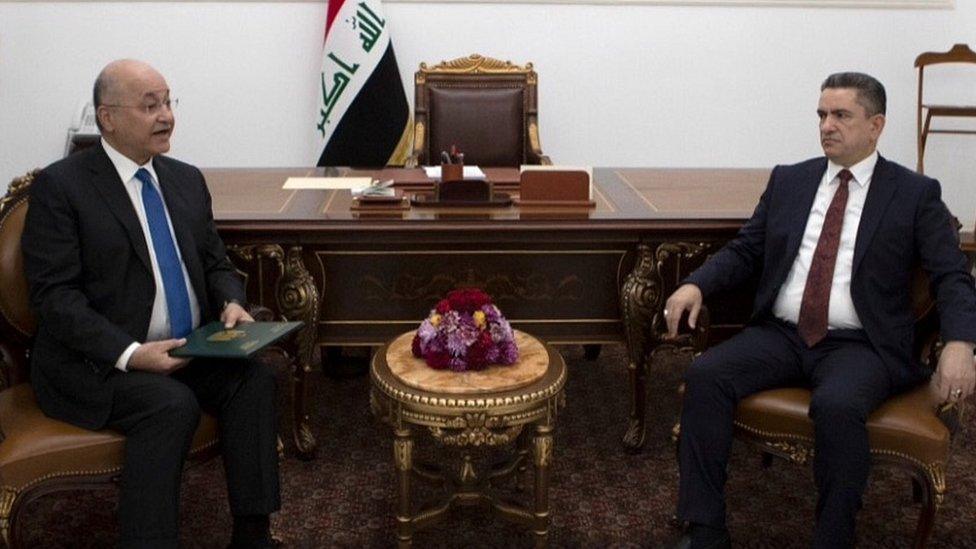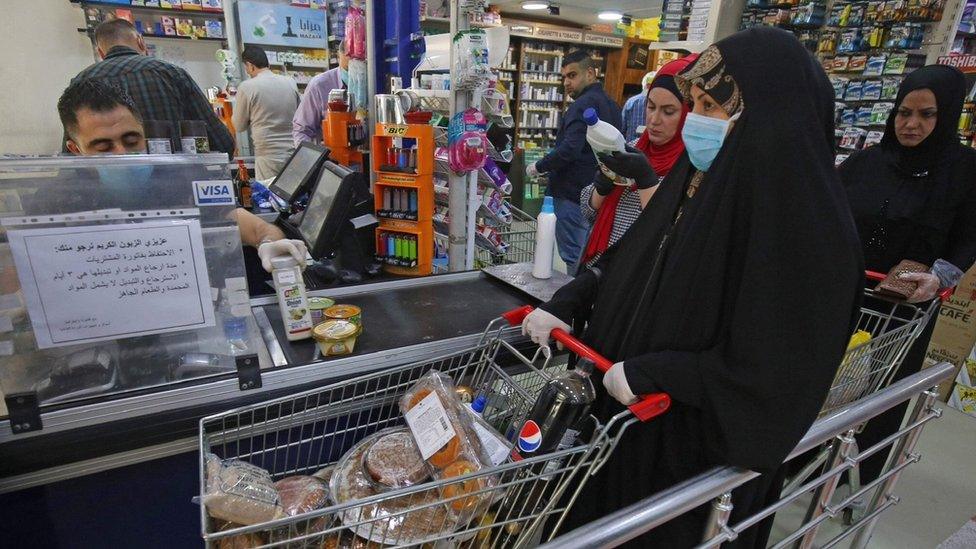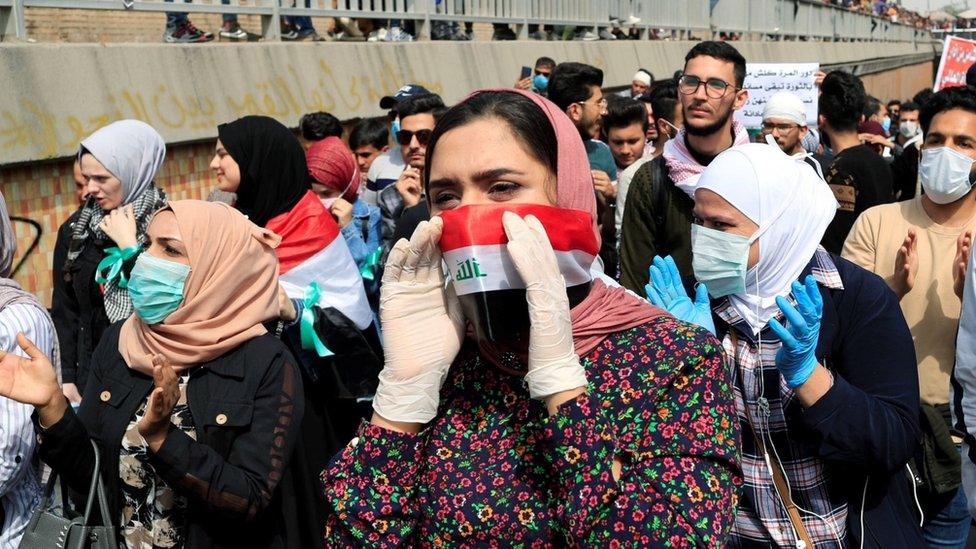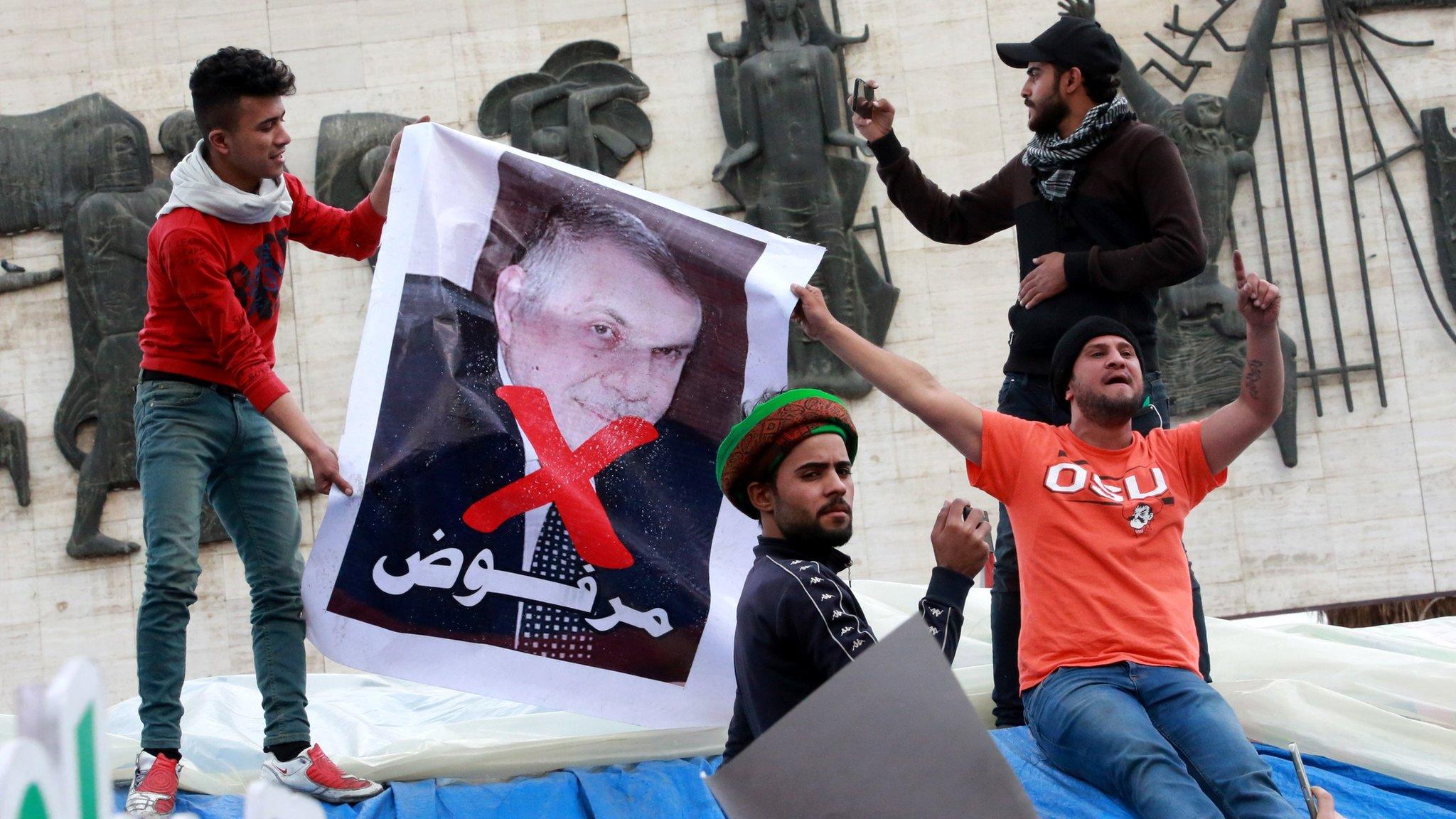Iraq PM-designate appointed to break deadlock
- Published

Adnan al-Zurfi (R) must overcome widespread opposition to gain parliamentary approval for a cabinet
Iraq’s president has named Adnan al-Zurfi as prime minister-designate in a bid to end months of political deadlock.
Mr Zurfi, who served three terms as governor of Najaf, is a member of the small Nasr parliamentary group of former Prime Minister Haider al-Abadi.
He was nominated by President Barham Saleh after larger groups could not agree on a successor to Adel Abdul Mahdi.
The move also comes as Iraq struggles to contain an outbreak of the new coronavirus disease.
The health authorities have reported 154 confirmed cases of Covid-19 and 11 associated deaths.
A week-long curfew will be imposed on the capital, Baghdad, from Tuesday night to prevent the spread of the disease.

A woman waits at the till of a supermarket in Baghdad before the start of a curfew
Mr Zurfi, 54, has served three terms as governor of the predominantly Shia province of Najaf between 2004 and 2015.
He was first appointed to the role by the US-led Coalition Provisional Authority, which governed Iraq after the invasion that toppled Saddam Hussein.
After announcing Mr Zurfi as prime minister-designate on Tuesday, President Saleh wished him success “in his new tasks to work for early and fair elections and to achieve the aspirations of the Iraqis”.
The UN special representative in Iraq, Jeanine Hennis-Plasschaert, said: “Faced with unprecedented security, political, economic and health crises, Iraq desperately needs an effective candidate.”
According to Iraq’s constitution, Mr Zurfi has 30 days to name a cabinet and get parliamentary approval.
However, it appeared that he might struggle to do so, with the main Shia political parties reportedly objecting to his nomination.
“Zurfi will face tough resistance inside parliament and he will need a miracle to pass his government,” one Shia lawmaker told Reuters news agency.

Protesters wearing face masks take part in a demonstration on International Women’s Day in Baghdad (8 March 2020)
Mr Abdul Mahdi has been caretaker prime minister since November, when he resigned in response to mass anti-government protests.
Iraqis have been taking to the streets of the capital, Baghdad, and many southern cities to express their anger at endemic corruption, high unemployment, dire public services and foreign interference in the oil-rich country.
More than 500 protesters have been shot dead by security forces and unidentified gunmen during the unrest. Thousands of others have been injured.
(December 2019) Iraq ends year in political turmoil
The first candidate designated to succeed Mr Abdul Mahdi, Mohammed Allawi, withdrew his candidacy on 1 March after parliament failed to approve his cabinet.
Mr Allawi complained that politicians were not serious about implementing reforms promised to the protesters.
Angered by parliamentary deadlock, Mr Abdul Mahdi said he would stop carrying out most of his official duties. But the crisis caused by the Covid-19 outbreak prompted him to reverse the decision.
- Published2 March 2020
